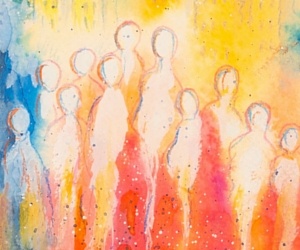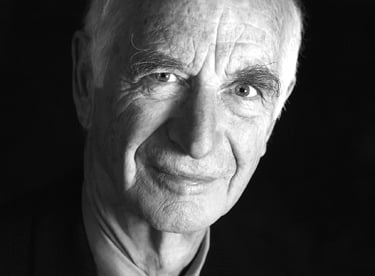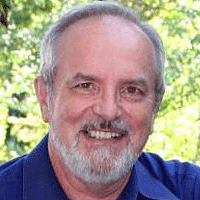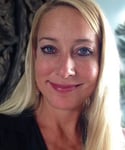A guest post by Bonnie Bright, Ph.D.
Depth Psychology is often associated with “soul.” Many great thinkers in the field have shared some important thoughts on the topic, and perhaps none more so than psychologist and author, Thomas Moore, whose best-selling book, Care of the Soul, is one of the most recognized and appreciated works on the topic. Thomas Moore is speaking at the upcoming Climates of Change conference in celebration of Pacifica’s 40th anniversary in April 2016.
 When I sat down recently with Thomas to discuss the topic of soul and spirituality, my first request was that he elaborate on the difference between spirit and soul. Moore’s understanding of the topic is rooted firmly in the past, going back to some of the earliest teachers of soul. While he explained his perception of the difference between spirit and soul in some detail, what struck me is that soul thrives on the “holy” and that there is a “non-human” dimension to it.
When I sat down recently with Thomas to discuss the topic of soul and spirituality, my first request was that he elaborate on the difference between spirit and soul. Moore’s understanding of the topic is rooted firmly in the past, going back to some of the earliest teachers of soul. While he explained his perception of the difference between spirit and soul in some detail, what struck me is that soul thrives on the “holy” and that there is a “non-human” dimension to it.
Most of the work Tom does is rooted in the spiritual traditions or in the depth psychology of both C. G. Jung and James Hillman. Both of these fields generally accept that there’s more going on within us and in the world around us that we can know, understand, or control. As an example, Tom points out that he did not “design” the life he has led, but rather has “discovered” it as he went along, trusting and having faith in life itself, even when he had no idea what was going to happen next. That for him is “not human,” because it is more than any human being can possibly understand.
While you may call one’s unfolding “destiny,” or “fate,” the language or metaphor or poetic language we engage to express the Mysterious is primarily about our feeling of its value and our great reverence toward it is what Thomas calls the “holy.” This describes Moore’s own sense of reverence for the Mysterious which has shaped his life.
In his most recent book, A Religion of One’s Own, Thomas shares some ways to tap back into a sense of spirituality. When the topic arose, I asked Thomas his opinion about the role of formal religion, which seems to be waning in our modern world.
Tom surmises that existing institutions, including religions, need to be re-imagined to suit our times. His definition of religion is a “creative and concrete response to the Mysteries.” Religion is not just an idea or belief, he insists, nor is it about perfecting ourselves. It’s about our relationship to the Mysterious “other.”
 Moore cites Henry David Thoreau and Ralph Waldo Emerson, nineteenth-century authors, poets and philosophers whose grasp of religion was, in the sense that Moore describes it, a “personal experience of the holy.” They designed their lives to be more contemplative, Moore suggests, in order to be in relationship to nature and to the mysterious things in life. Thomas also insists secular literature is holy, confirming that he gets religious and spiritual guidance there. Traditional religions have changed in contemporary culture and are now “losing favor” because we are moving into a new world, he says.
Moore cites Henry David Thoreau and Ralph Waldo Emerson, nineteenth-century authors, poets and philosophers whose grasp of religion was, in the sense that Moore describes it, a “personal experience of the holy.” They designed their lives to be more contemplative, Moore suggests, in order to be in relationship to nature and to the mysterious things in life. Thomas also insists secular literature is holy, confirming that he gets religious and spiritual guidance there. Traditional religions have changed in contemporary culture and are now “losing favor” because we are moving into a new world, he says.
Upon hearing this, I think of the alchemical adage that the the “old king” must die in order for alchemical transmutation to begin and so something new can take its place. We are seeing dynamic change on the planet, and so much is in decline— not just religion, but also in the natural world and in social systems around the globe. Allowing ourselves to be open, to be touched by wonder and awe of otherly forces is a critical process. If we don’t surrender, transformation will be forced on us, because it will happen whether we like it or not, I suggest to Thomas.
Moore agrees, invoking a Latin term he utilized as a monk, contemptus mundi, which means not contempt for the world, but rather resistance to the world. To develop a sense of the holy, he says, we have to resist the secular culture and resist the science-based culture of today, as it doesn’t make room for the holy and the “other.” The secular world is not enough for us. In order to have a soulful life, we need to have a sense of the holy. In a paradoxical way, the more we can be in touch with the transcendent and the mysterious, the more human we are, Thomas contends. It touches and opens and feeds our soul in a way that can only happen when we have a connection to a bigger reality, so a “soulful life” corresponds to the life of the holy.
 I felt a growing realization as Thomas talked about being human, a reminder that the root of the word human is related to humus which is related to the earth itself. There is no “inside” and “outside,” just as Thomas said. Everything is connected. When I mentioned this to him, he reminded me that James Hillman, with whom Moore was friends for 38 years, believed that soul is in everything. Hillman was greatly interested in the anima mundi, or soul of the world, Moore told me, remembering how Hillman decided to stop his private therapy practice because he wanted to turn his therapeutic attention to the world. For his part, Thomas tells me, he chose to do both—to continue his private practice in order to help the individual, and to write books to help bring an awareness of soul in the world outside of us.
I felt a growing realization as Thomas talked about being human, a reminder that the root of the word human is related to humus which is related to the earth itself. There is no “inside” and “outside,” just as Thomas said. Everything is connected. When I mentioned this to him, he reminded me that James Hillman, with whom Moore was friends for 38 years, believed that soul is in everything. Hillman was greatly interested in the anima mundi, or soul of the world, Moore told me, remembering how Hillman decided to stop his private therapy practice because he wanted to turn his therapeutic attention to the world. For his part, Thomas tells me, he chose to do both—to continue his private practice in order to help the individual, and to write books to help bring an awareness of soul in the world outside of us.
I’m reminded then how Jung talks about how the work must begin with the individual, and as we each do our own work, it can ripple out into the world. It makes me think of how hard it can be at times to actually do the work and how precious and poignant it is when we get overwhelmed by the world and experience dark nights of the soul. I ask Tom if he has insights on how we can deal with these valleys we encounter.
Among other suggestions, one important practice is to express ourselves in poetic language, to find an artistic way, even a beautiful way, to depict how you’re feeling. It’s the beauty that brings soul forward, Thomas maintains.
I think of a lecture not long ago where I heard Thomas talk about a Japanese art form, wabi-sabi, the Japanese art of imperfection, where cracks in pottery are repaired with gold to enhance them and make them beautiful. All of us could benefit from the idea of wabi-sabi when we are in the valleys, or dark nights, Moore expounds, because we are wabi-sabi in that moment. “What if we had the idea of ourselves as essentially and beautifully imperfect?” he asks. That would help us get through those dark moments.
In response, I contemplate how each of us has a different way of dealing with challenges that arise for us, and different ways of tapping into that sense of soul or holy or sacred. How can we introduce the holy more fully into the collective, I wonder.
We are suffering from our secularism, Thomas says. The church and the secular world are split into opposites. That kind of split is an indication of neurosis. Something is wrong. It would help if we didn’t separate what we do on one day of the week from the rest of the week.
Another positive move is to find the holy manifested in the natural world. By doing this, we can make every effort to move against the degradation of the natural world we’re experiencing. Spiritual life requires nature. It also requires time and work—a lifelong process of going through passages and initiations in order to become a mature person, and a psychology that is deeper than what is currently taught in most schools, Thomas suggests.
For Moore, connecting psychology with religions is very valuable. Religions teach a lot about initiation, values, and seeing a vision of the world. Secular psychology doesn’t provide the depth of thought, or “deep culture,” or a connection with the wisdom of the past, all aspects of soul which are so greatly needed for tending the soul of the world. Engaging with depth psychology and finding the holy in our own experience, though, is a beginning. May each one of us make that move toward consciousness in whatever small, precious way we can.
Listen to the full interview with Thomas Moore here (Approx. 33 mins.)

Thomas Moore, Ph.D., received his degree in religion from Syracuse University. Before that he was a monk for thirteen years. He is the author of Care of the Soul and nineteen other books, with four new publications coming out in 2016. He has been a psychotherapist for forty years and lectures widely on depth psychology, religion/spirituality and the arts. He was a close friend of James Hillman for 38 years. He is also a musician, translator and writer of fiction. For more information, visit www.careofthesoul.net.
 Bonnie Bright, Ph.D., graduated from Pacifica’s Depth Psychology program after defending her dissertation in December 2014. She is the founder of Depth Psychology Alliance, a free online community for everyone interested in depth psychologies, and of DepthList.com, a free-to-search database of Jungian and depth psychology-oriented practitioners. She is also the creator and executive editor of Depth Insights, a semi-annual scholarly journal, and regularly produces audio and video interviews on depth psychological topics. Bonnie has completed 2-year certifications in Archetypal Pattern Analysis via the Assisi Institute; in Technologies of the Sacred with West African elder Malidoma Somé, and has been extensively involved in Holotropic Breathwork™ and the Enneagram.
Bonnie Bright, Ph.D., graduated from Pacifica’s Depth Psychology program after defending her dissertation in December 2014. She is the founder of Depth Psychology Alliance, a free online community for everyone interested in depth psychologies, and of DepthList.com, a free-to-search database of Jungian and depth psychology-oriented practitioners. She is also the creator and executive editor of Depth Insights, a semi-annual scholarly journal, and regularly produces audio and video interviews on depth psychological topics. Bonnie has completed 2-year certifications in Archetypal Pattern Analysis via the Assisi Institute; in Technologies of the Sacred with West African elder Malidoma Somé, and has been extensively involved in Holotropic Breathwork™ and the Enneagram.



